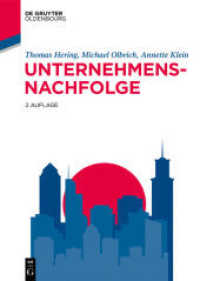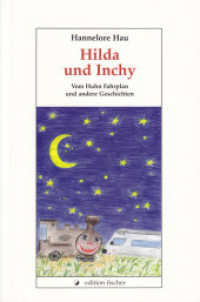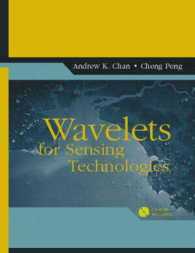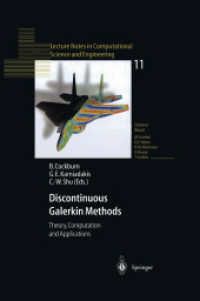- ホーム
- > 洋書
- > ドイツ書
- > Humanities, Arts & Music
- > History
- > regional history
Full Description
This book argues that while the historiography of the development of scientific ideas has for some time acknowledged the important influences of socio-cultural and material contexts, the significant impact of traumatic events, life threatening illnesses and other psychotropic stimuli on the development of scientific thought may not have been fully recognised. Howard Carlton examines the available primary sources which provide insight into the lives of a number of nineteenth-century astronomers, theologians and physicists to study the complex interactions within their 'biocultural' brain-body systems which drove parallel changes of perspective in theology, metaphysics, and cosmology. In doing so, he also explores three topics of great scientific interest during this period: the question of the possible existence of life on other planets; the deployment of the nebular hypothesis as a theory of cosmogony; and the religiously charged debates about the ages of the earth and sun. From this body of evidence we gain a greater understanding of the underlying phenomena which actuated intellectual developments in the past and which are still relevant to today's knowledge-making processes.
Contents
Part1. Introduction.- 1. Crisis and Cosmology.- Part II The Extraterrestrial Life Debate.-2 Planets and Pluralism.-3 "In Yonder Hundred Million Spheres".- 4 "What Is Man if Thou Art Mindful of Him?".- 5 Richard Proctor and Private Judgement.- Part III The Nebular Hypothesis.- 6 John Pringle Nichol, the Nebular Hypothesis and Progressive Cosmogony.-7 "And Eddied into Suns, that Wheeling Cast/The Planets".- 8 "In Tracts of Fluent Heat Began".- Part IV The Ages of the Earth and Sun.- 9 "And Murmurs from the Dying Sun".- 10 The North Britons








